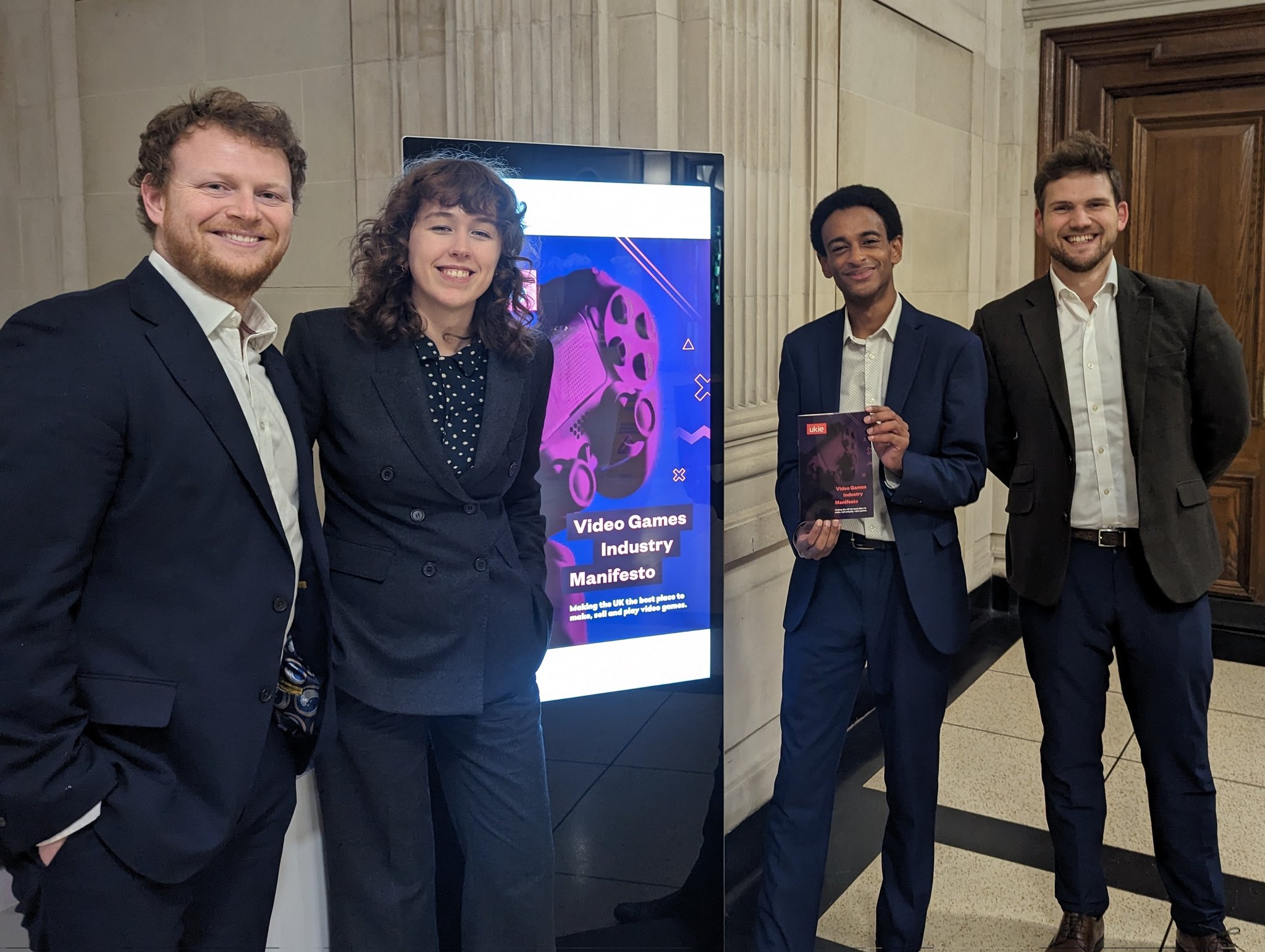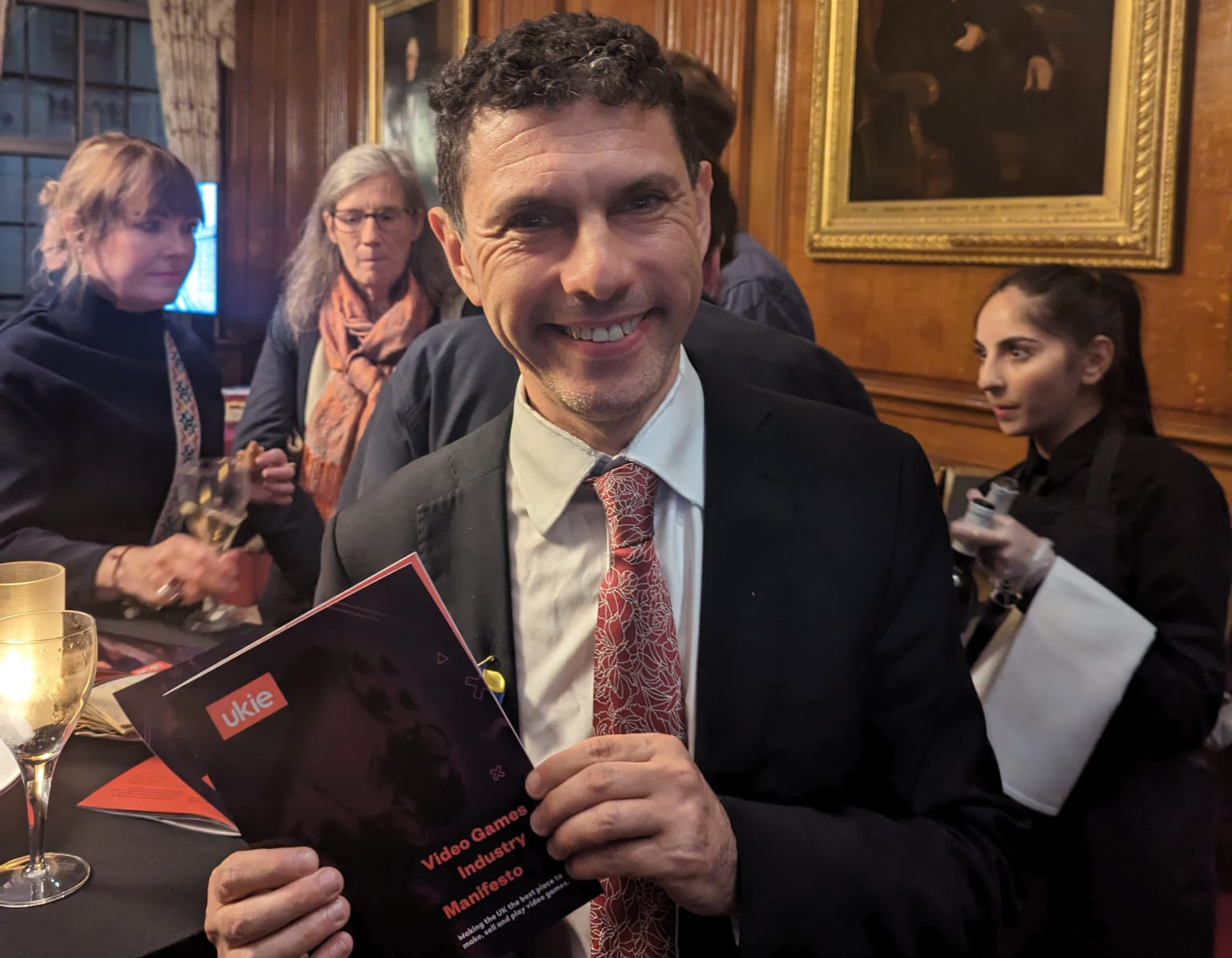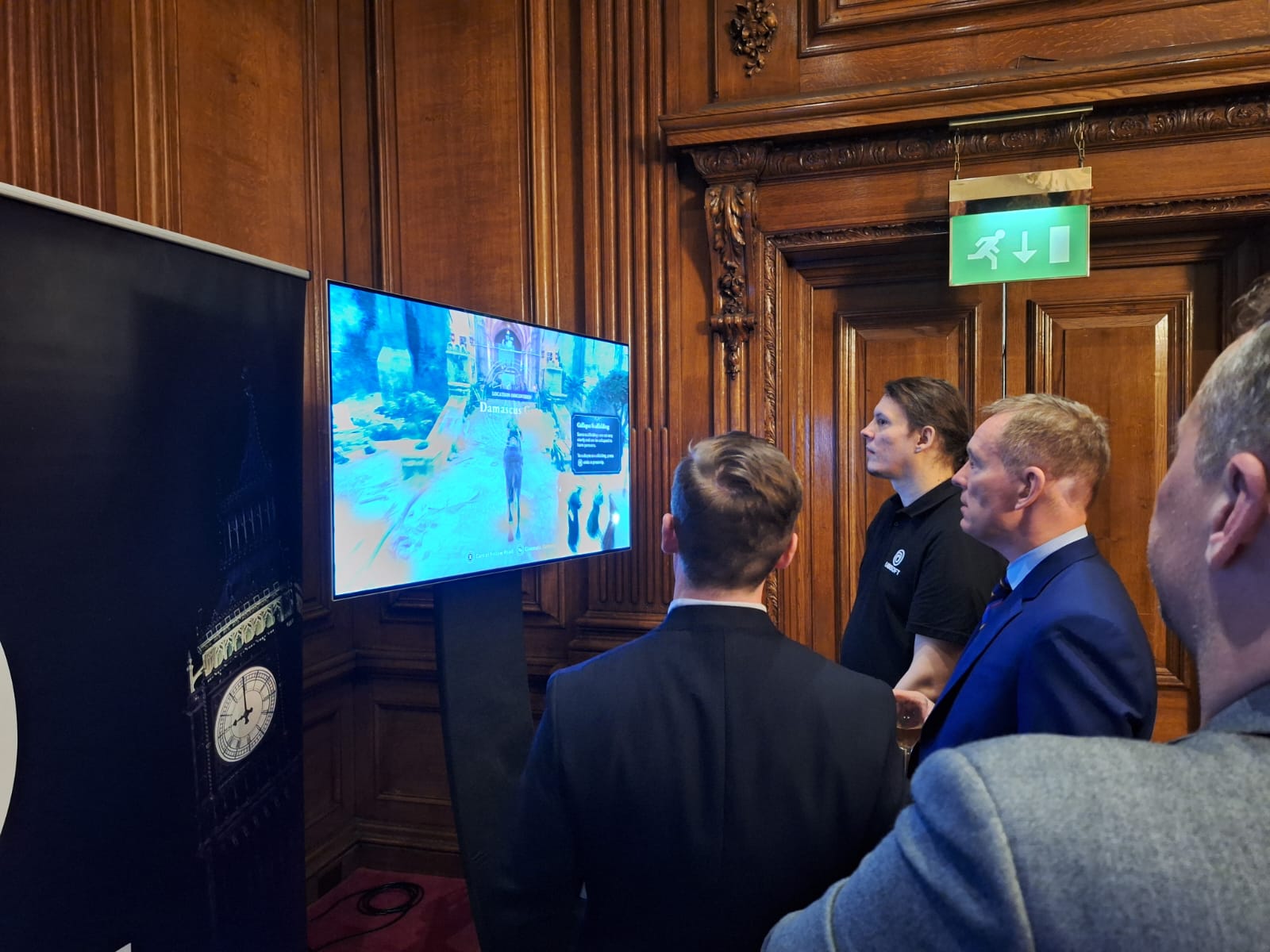Skills crisis putting the breaks on business growth, say video games companies
Earlier this week, Ukie launched its Video Games Industry Manifesto in the heart of Westminster, with representation from both Parliament and industry alike.
Chris Bryant MP gave a rousing speech on access to the creative industries before trying out some game demos with Ubisoft and the Games Rating Authority. We also saw speeches from Tim Woodley, Chair of the Ukie Board and Emma Smith (Pg Dip CIPD) who heads up our Education steering group.

The Video Games Industry manifesto calls for the next government to focus its efforts on supporting home-grown talent to help not only the country’s games industry to reach its full potential, but the entire economy.
The video games industry is one of the fastest growing creative industries in the UK - contributing over £6 billion to the economy and supporting 76,000 jobs across the supply chain. But the UK talent pool isn’t growing at the same rate as the industry, with companies struggling to fill 8% of vacancies – a problem that Ukie estimates costs the UK economy £133 million per year in lost GVA.
Ukie’s Video Games Industry Manifesto sets out a three-pronged approach to ensuring the UK is the best place to make, sell and play games in the world – prioritising the skills agenda, improving access to funding and smart regulation.
It has identified the increasing demand for skills that go beyond traditional academic subjects, following research indicating that about one-third of the vacancies employers find difficult to fill are, to some degree, attributable to a lack of appropriate digital skills amongst applicants.
A Digital Creativity GCSE will empower students to mix technical skills with creative thinking – a combination the House of Lords Unemployment Committee and the House of Lords Communication Committee both identified as “essential” in the last year. Post-16, Ukie is calling for the apprenticeship levy to be reformed and expanded, allowing it to be used more flexibly for training and upskilling as well as attracting career switchers.
Meanwhile, Ukie also called for the establishment of a dedicated skills body that would work with government and industry to deliver a dedicated, national games skills strategy, fostering collaboration and in drawing together existing best practice and delivery in this area, is critical. This dedicated body would manage the reintroduction of a Skills Investment Fund, designed to help boost skills, training and development in much needed roles across the industry.

At the same time, the manifesto urges the next Government to renew and expand the UK Games Fund, increasing it to £30 million over three years. Since its launch in 2015, the Fund has offered up to £25,000 to promising new projects in the sector. But its funding expires in 2025 whilst countries like Germany, France and Canada continue to offer a range of incentives via funds and tax reliefs for games businesses which put the UKs competitive advantage at risk.
When considering the benefits of smart regulation to the industry, the manifesto also recommends that Government avoid making unnecessarily complex alterations to existing incentives such as the introduction Video Games Expenditure Credit, and should pursue more local measures which support growth of the games sector. The balancing act between fostering innovation and ensuring protection for creators is also cited in relation to the increasing presence of AI on the political agenda.
As an internationally renowned industry, games businesses need to be able to compete globally. The next Government should reverse the increase in skilled worker visa charges and associated health surcharge which represent an increasingly significant cost for business.
The manifesto document is available to download here.
Daniel Wood, Co-CEO of Ukie said:
“We’re delighted to be speaking on behalf of our 600 members to make the needs of our sector crystal clear to Government around the key areas of skills, funding and regulation.
By launching this manifesto, we want to send a message to those in power that the UK games industry is not only a strong economic powerhouse, but also a key cultural export. To continue to grow and compete globally, our Manifesto sets out where the industry needs more support, particularly in addressing our skills needs and providing more funding if we are to live up to our full potential.
We urge policy makers of all parties to recognise the growth opportunities that the games sector offers to the UK and look forward to working with them to make the UK the best place in the world to make, sell and play games.”
Tim Woodley, Head of Publishing, Hello Games and Chair of Ukie Board said:
“Games companies up and down the country are noticing the negative impact that a shortage of the right kinds of skills is having on their business.
It is vital that Government heeds the recommendations included in Ukie's manifesto to not only support the UK’s video game industry but also to futureproof our workforce for an increasingly digital economy.”

